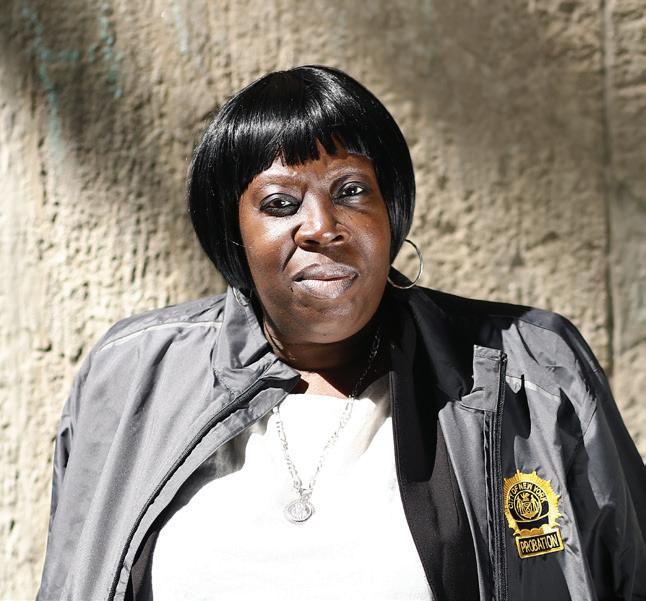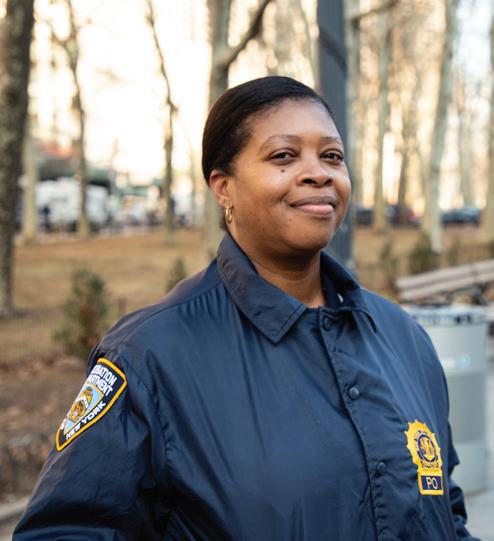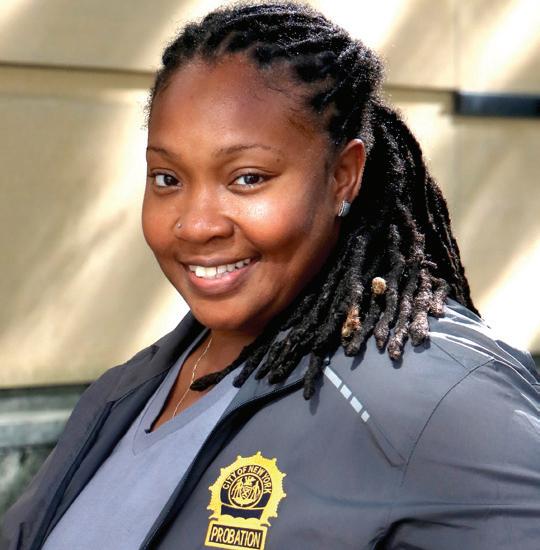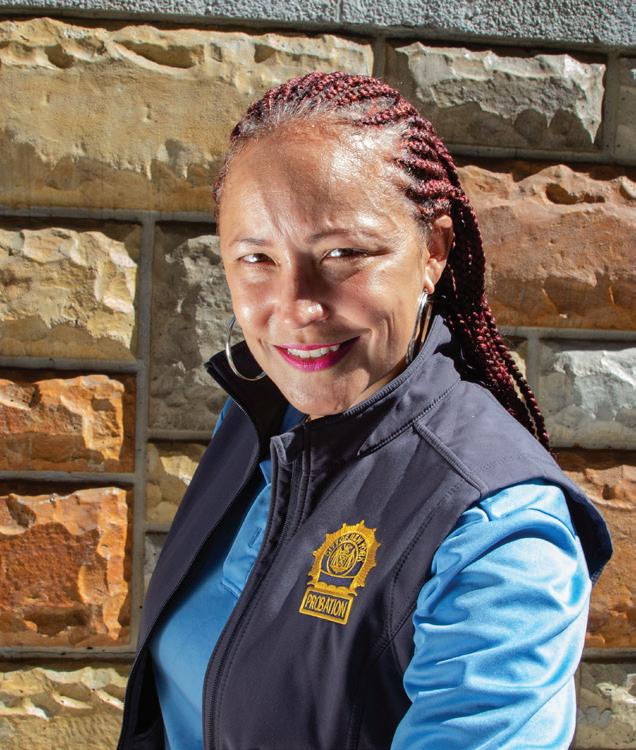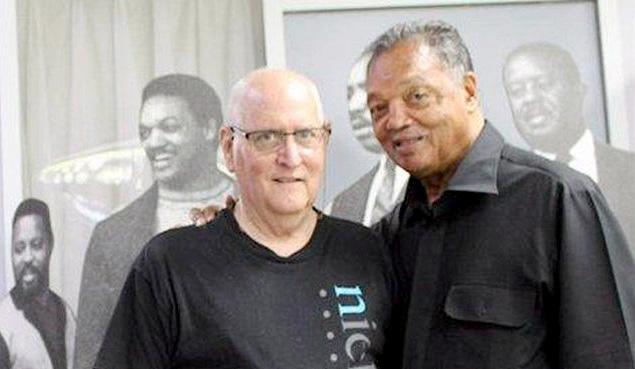
12 minute read
In the Classroom
Rev. Frank Watkins: A courageous, indefatigable civil rights activist
By HERB BOYD
Special to the AmNews
When it comes to the Civil Rights Movement courage and commitment have no color, and that’s why we profile Frank Watkins this week. Let me begin on a personal note. I first met Frank on the airwaves where we were both commentators on the Jeff Santos Show, a radio show now streamed online. During his introductions of Frank, Jeff would often note his long affiliation with the Rev. Jesse Jackson, and then we would take on a number of current and historical topics, and I would often concede the mic to Frank, though he always expressed a sharing approach.
Appearing with him was a learning experience because he was such a savvy and insightful activist and scholar in the political realm. He was particularly knowledgeable about the machinations in the electoral process, much of this information gathered working with Rev. Jackson and in sundry organizations and institutions.
It was from Jeff that I learned that Frank had joined the ancestors on September 16, one day shy of his 80th birthday in Washington, D.C. after a lengthy illness. We had not been on the air together but once since the outbreak of the pandemic. According to Rev. Jackson, Frank suffered from a combination of COVID and pneumonia that “proved too much.”
Frank, the minister continued, was a “true hero and a true friend…and will be terribly missed.” He was in Jackson’s memory, a fighter against voter suppression and for the equity of Blacks and died “with his boots on.”
In the process of gathering vital statistics on Frank, very little about his early years was immediately available, but we do know that he was white and a graduate of the Chicago Theological Seminary. He was among the loyal assistants to Jackson organizing many of the corporate covenants proposed by Jackson that resulted in procuring jobs for many Black Americans.
“Frank was indefatigable, filled with ideas and energy and willing to work,” Jackson said in his published account of his comrade. “A skilled college athlete, he was immediately invited to join our ‘Grapefruit League,’ a regular pickup basketball game that we played weekly to blow off steam. By 1975, he became the spokesperson and communications director for PUSH—People United to Serve Humanity. He was far more than that. He was the indispensable right hand. A demon researcher and public scholar, he drafted press releases and worked on speeches and reports. He helped organize me—no small task. He was a constant source of ideas and memos on what comes next—how we should organize to best be effective.”
A moving tribute by Kevin A. Gray includes a poignant comment from Frank in which he said, “I didn’t grow up in a political household. My parents registered and voted for the first time in 1960—because I made them. I strongly recommended that they vote for Kennedy, and I think they did. I couldn’t vote in 1960 because the 26th Amendment lowering the voting age to 18 wasn’t added to the Constitution until 1971.”
Gray added that Frank “graduated from O’Fallon Technical High School in 1961 as a star athlete. His ambition was to be a professional baseball player. The Philadelphia Phillies even offered him a scholarship. But then Anderson University informed him that retired Los Angeles Dodgers star pitcher Carl Erskine had been named baseball coach there, so he changed his mind.”
Betty Magness, Illinois political director for the Rainbow PUSH Coalition, called Frank “a political guru,” and said that her memories of him go back to when they taught political education classes. “Frank taught Research I & II and I taught Communications,” she said. “Alice Tregay and Leon Davis were the leaders. A great number of graduates went on to be elected officials.”
Frank is remembered by Shelly Davis, national political director for the Rainbow PUSH Coalition as “a part of the quilt that is now the Rainbow PUSH Coalition. I have known Frank for two decades, and his passion and commitment to equal access for voting rights never eased.”
Senator Jacqueline Collins (D16th) is another who remembers Frank’s unstinting service. “Frank was a brilliant political strategist and courageous social justice warrior,” she began. “It was an honor to work with him as he humbly sought to serve humanity. May he rest in peace and power.”
Rev. Jackson picks up Frank’s journey in 1984 when he was a critical part of his presidential run. He said that Frank was a veritable polymath, working tirelessly as “part secretary, part strategist, part speechwriter, part researcher. He understood how vital the campaign was in registering new voters—Blacks, the young, the poor. In the 1988 campaign, his role expanded as did the campaign. Then he helped conceptualize the creation of Rainbow PUSH and the effort to build a new progressive politics that would make America better. Along the way, Frank somehow found the time to help write and edit several books. He helped edit ‘Straight from the Heart’ a 1987 collection of my speeches, articles, and columns that he had often worked on in early drafts. After the 1988 campaign, he combined with Frank Clemente to edit ‘Keep Hope Alive: Jesse Jackson’s 1988 Presidential Campaign’ which brought together the message, the agenda, and the strategy of what was an historic campaign.”
In 2002, Frank moved to the nation’s capital where he became the communications director and press secretary to Rep. Jesse Jackson Jr. and later joined him to author “A More Perfect Union: Advancing New American Rights.”
To Alanna Ford, executive assistant to both Rev. Jackson and Bishop Tavis Grant, national executive director, Frank “was always engaging and a wealth of information. He could write a book faster than we could blink our eyes,” she said. “We were always in awe of him because of the plethora of history and statistics he was able to rattle off at any given time or place on any given subject. We all sought to emulate his memory and grasp of politics, religion, and history. I saw ‘Uncle Frank’ in action, and he had a game.”
Frank, in the estimation of Rev. Cameron Barnes, national field director for the Rainbow PUSH Coalition, “was the walking political encyclopedia. He was more than a staffer of Rainbow PUSH. He was the backbone of it. He had every state drawn up, from population breakdown to the results of its last election, and everything in between. From his home, he knew the political state of any American territory. He was, and to me still is, the pinnacle of political expertise.”
These impressions were shared by the Rev. Paul Jakes, pastor of the New Tabernacle of Faith Baptist Church, who in his opinion was a “voice crying out for justice in this nation. “Brother Frank Watkins was also a faithful minister of the gospel, fulfilling Dr. King’s dream that whites and Blacks can work together, march together and stand up for justice together. Brother Frank didn’t have to work with Rev. Jackson, but he did. He could have easily blended into white society and been comfortable. Rather, Frank Watkins had the character and the will to let his light shine. He was a true voice in the wilderness for justice.”
Gray wrote that Frank, “growing up in St Louis, Frank did not come from a family of radicals. His passion for justice, his deep sense of faith, his experience with the Civil Rights Movement brought him to the indispensable roles he played. In the beginning, his parents had doubts about his course. Over time, however, Frank convinced them—as he did so many—about the justice of his cause and the importance of his commitment.”And before his death, Gray added, “Frank set up a fund to bolster a public education and lobby campaign to expand voter rights and push for a constitutional amendment guaranteeing the right to vote, issues on which he had been working tirelessly. Those wishing to advance these goals may send a donation to: The Trust of Frank E. Watkins, P.O. Box 70925, Washington, D.C. 20024.”
Rev. Frank Watkins (l) with the Rev. Jesse Jackson (Courtesy of Rainbow PUSH Coalition) ACTIVITIES
FIND OUT MORE
So much more about Rev. Watkins can be found at Rainbow PUSH Coalition files where he worked and organized for years.
DISCUSSION
Wish I could have found more about his personal life, wife, family, et al. But it’s good to know of his commitment to Rev. Jackson and the movement.
PLACE IN CONTEXT
The best context for Rev. Watkins is the Civil Rights era where even as he often worked behind the scenes, he was an essential cog in the wheel for justice.
THIS WEEK IN BLACK HISTORY
Oct. 2, 1800: Nat Turner, who led a historic slave revolt, was born in Southampton County, Va. He was hanged in 1831.
Oct. 2, 1935: Robert Henry Lawrence, the first African American astronaut, was born in Chicago. He was killed during a launch in1967.
Oct. 2, 1937: Noted attorney Johnnie Cochran was born in Shreveport, La. He died in 2005.
Another business owner, who wished to be unnamed, said crime is up around the area over the past two years, although mostly with shoplifting. Last Tuesday, Sept. 27, another shooting on 125th Street between 6th and 7th avenues left another two New Yorkers injured, including a street vendor who was inadvertently hit, reported CBS2’s Dave Carlin. The incident occured in broad daylight only steps away from both the state office building and the Apollo Theater.
Tandy Lau is a Report for America corps member and writes about public safety for the Amsterdam News. Your donation to match our RFA grant helps keep him writing stories like this one; please consider making a tax-deductible gift today by visiting: https://tinyurl. com/fcszwj8w
Affordability Crisis
Continued from page 3
how do you maintain or transfer the home to someone that looks like that neighborhood. Something we’re seeing less of in recent years,” said White.
Clarke said that across the country, and in Brooklyn, soaring rent prices and the severe lack of affordable housing units continue to displace low-income communities, making basic housing needs unattainable for those who need it most.
The serious rise in rents has led to the deterioration of “affordability” in the northeast in the past 12 months. For example, the median asking rent in 50 of the largest cities decreased to $1,771. Meanwhile, the median rent for onebedroom apartments in the New York, Newark, Jersey City, and Pennsylvania areas is $2,498 while the median asking rent of two-bedrooms is $3,107 monthly, said Realtor.com’s August Rental report.
The Affordable Housing and Area Median Income (AMI) Fairness Act examines the AMI statistic set by the Department of Housing and Urban Development and is used as the basis for income caps and rent pricing associated with affordable housing. The bill asks to reevaluate AMI and create recommendations for reforming or eliminating the use of AMI altogether.
“In cities like New York, the AMI is inflated,” said Clarke. “Units designated as affordable, may not be feasible to most renters of the community. More than one-third of families in East New York earn less than 30% of the AMI, making it even more challenging to access affordable housing.”
Clarke said that affordable housing units are extremely challenging to come by. Units that come up on the market often go to those who can present landlords with the best-looking application rather than to families who desperately need housing the most, she said.
The homeownership problem, coupled with the rise in rents, the difficulty in finding and qualifying for the affordable housing lottery, and the current migrant housing crisis overburdening the city’s shelter system, has led to a powder keg situation for the Black and brown community.
“As it relates to homelessness, that goes back to the housing insecurity issue. You’re housed and then all it takes is one crisis and then you’re not able to stay in housing. The pandemic contributed to that. There’s also individuals with mental health and other health issues that compounded their being unhoused,” said White. “And of course, the system is being swept with refugees that are being picked up regularly.”
White said another big part of the housing crisis is the erection of smaller luxury apartment buildings with amenities being easier to put up than ‘affordable housing.’ She said at any point for builders they need the rents to pay back loans in real estate, which is less favorable with non-competitive market units.
“It’s very expensive to build affordable housing. It is complex and takes a number of investors and staff to put together. I think that’s an issue from a policy standpoint in the city but also nationally,” said White. “Those who are in the business of building are not getting their capital. If they don’t have equity they’re not going to build it.”
A Citizens Budget Commission report on the city’s land use decision-making process also pointed out that the land use process itself is lengthy, costly, and often a “contentious” and political system that hampers affordability and job growth. The report added that housing production has categorically failed to keep up with population growth in the city.
White said there needs to be some housing development as well as equitable opportunities for Black and brown people to be in these homes and apartments. She said there needs to be more federal access to capital, fair appraisals for Black and brown homeowners, and more enforcement in fair housing laws.
Ariama C. Long is a Report for America corps member and writes about culture and politics in New York City for The Amsterdam News. Your donation to match our RFA grant helps keep her writing stories like this one; please consider making a tax-deductible gift of any amount today by visiting: https:// tinyurl.com/fcszwj8w
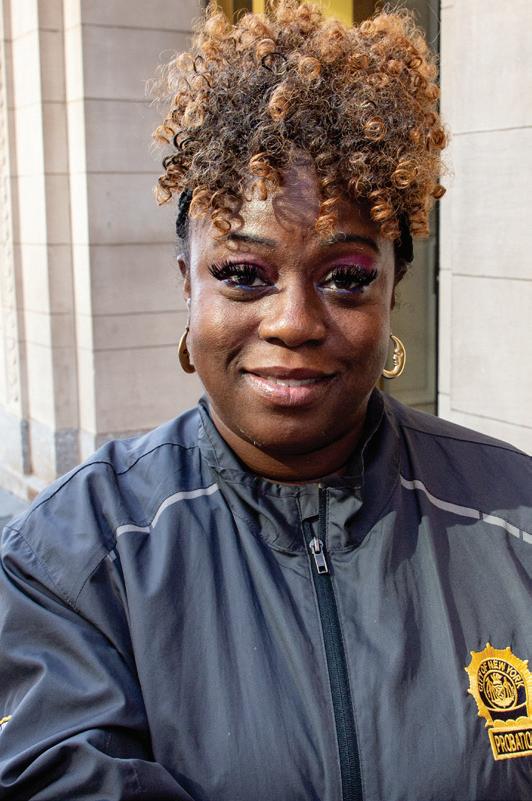
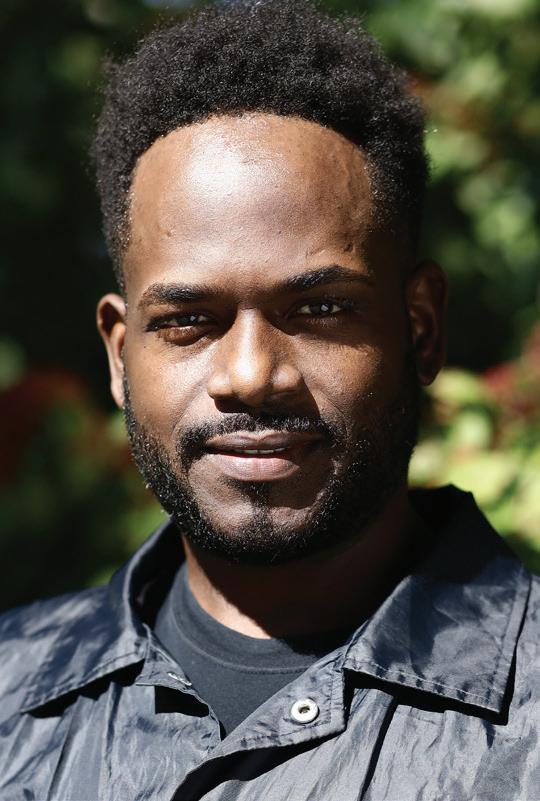
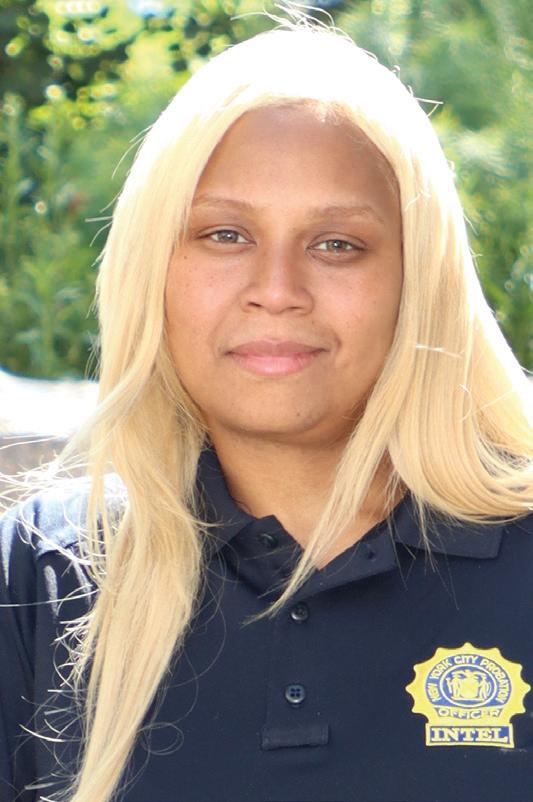
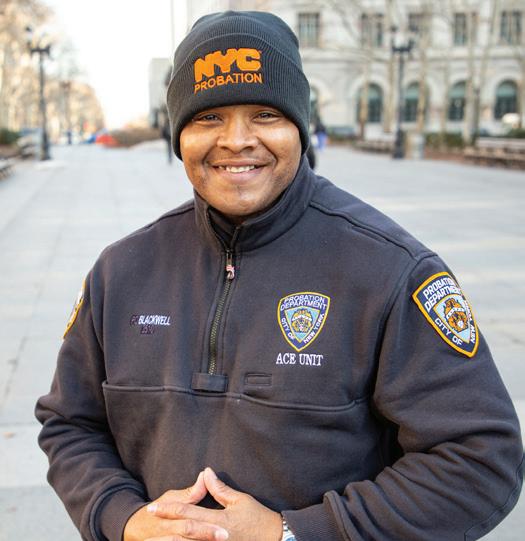
BE PART OF OUR STORY
